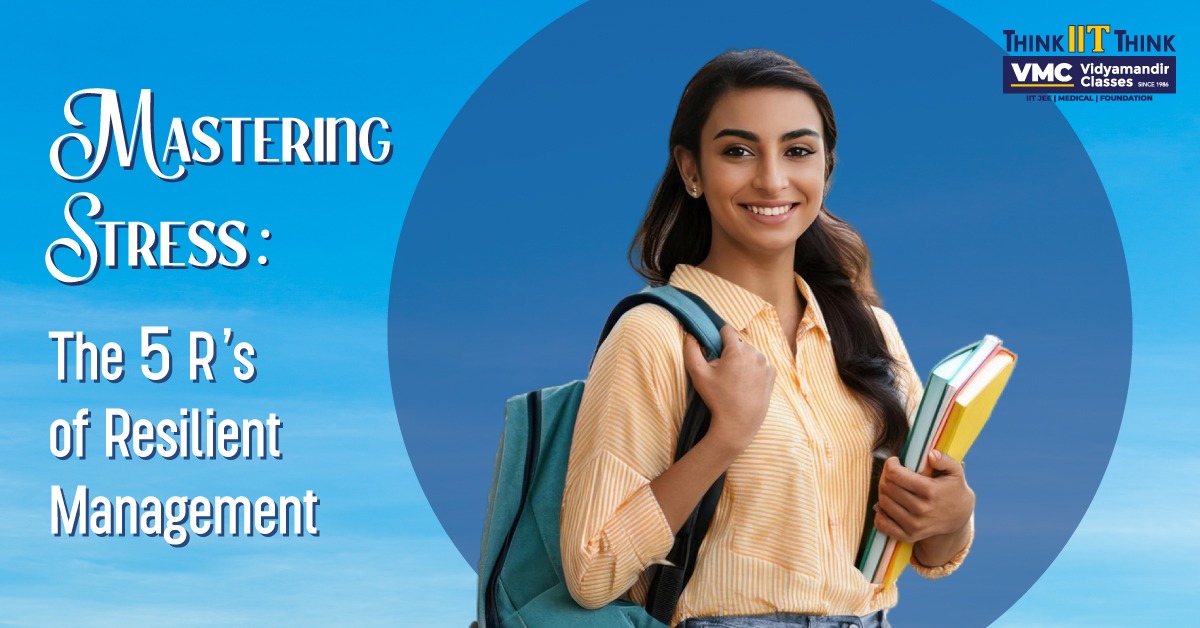Mastering Stress: The 5 R’s of Resilient Management
 Posted On
Posted On
171 total views, 1 views today
For many of us, stress has become a common companion in this fast-paced world. Whether it’s work-related pressures, personal challenges, or the complexities of daily life, stress can take a toll on our physical, emotional, and mental well-being. But managing stress is about knowing how to manage it well, not about getting rid of it completely. The key to resilient stress management lies in the 5 R’s: Recognition, Reflection, Reframing, Resilience, and Resolution. By understanding and applying these principles, you can turn stress from an overwhelming burden into a manageable aspect of life.
1. Recognition: Acknowledging Stress
The first step towards mastering stress is Recognition—acknowledging that stress exists in your life. It’s easy to ignore or downplay the effects of stress, but doing so only allows it to grow unchecked. Recognition involves being aware of the stressors that affect you and understanding how they manifest in your body and mind.
For instance, do you experience tension headaches, muscle aches, or fatigue when stressed? Perhaps stress affects your mental state, making it hard to concentrate or sleep. By recognizing these signs, you can begin to address the root causes of your stress and take proactive steps to manage it.
2. Reflection: Understanding Your Stress Triggers
Once you’ve recognized stress, the next step is Reflection. This involves taking time to examine the specific triggers that cause stress and how you respond to them. Reflection allows you to delve deeper into your stress patterns, gaining insight into why certain situations or people provoke stress in your life.
Consider keeping a stress journal where you document moments of stress, noting what triggered it and how you felt. Over time, you’ll start to see patterns emerge—perhaps certain tasks at work consistently cause stress, or maybe interpersonal conflicts are a major source of tension. By being aware of these triggers, you may begin to create plans to lessen their effects.
3. Reframing: Shifting Your Perspective
Reframing is a powerful tool in stress management. It involves shifting your perspective on stress, viewing it not as a threat but as a challenge or opportunity for growth.
For example, instead of seeing a tight deadline as a source of anxiety, you might reframe it as a chance to showcase your skills and efficiency. Reframing doesn’t mean ignoring the reality of stress but rather altering how you perceive it. By focusing on what you can learn or gain from stressful situations, you transform stress from a hindrance into a stepping stone for personal and professional development.
4. Resilience: Building Strength to Bounce Back
Resilience is the cornerstone of effective stress management. It’s not about being immune to stress but rather about developing the skills and habits that help you recover and maintain your well-being despite challenges.
Building resilience involves practices like mindfulness, which helps you stay present and grounded, and maintaining a strong support system of friends, family, or colleagues who can offer guidance and encouragement. Additionally, engaging in activities that replenish your energy, such as exercise, hobbies, or relaxation techniques, is crucial for resilience. Over time, these practices can fortify you against stress, making it easier to handle whatever life throws your way.
5. Resolution: Taking Action to Resolve Stressors
The final R in resilient stress management is Resolution—taking decisive steps to address and resolve the stressors in your life. This might involve setting clear, achievable goals, making necessary changes in your personal or professional life, or committing to a balanced lifestyle that prioritizes health and happiness.
For example, if work-related stress is a constant issue, you might set a goal to improve time management skills or delegate tasks more effectively. If personal relationships are a source of stress, consider having open conversations to address underlying issues. Resolution is about taking control of the aspects of your life that contribute to stress, rather than allowing them to control you.
Conclusion: Embracing the 5 R’s for a Balanced Life
Mastering stress through the 5 R’s—Recognition, Reflection, Reframing, Resilience, and Resolution—empowers you to take charge of your stress rather than being overwhelmed by it. Although stress will always be a part of life, you can develop a resilient attitude that will allow you to not only efficiently handle stress but also use it as a catalyst for personal development and fulfillment by putting these concepts into practice.
By embracing the 5 R’s, you’ll find that stress no longer has the power to derail your life. Instead, it becomes a tool you can use to learn, grow, and thrive, leading to a more balanced, healthy, and happy life.




